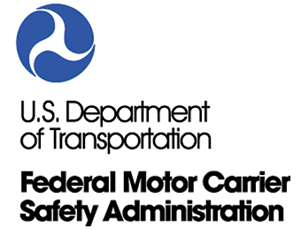Senior Reporter
FMCSA Announces Two-Year Delay of Its Entry Level Driver Training Rule

[Stay on top of transportation news: Get TTNews in your inbox.]
Compliance for a long-awaited rule intended to ensure that new drivers meet minimum training requirements before receiving their commercial driver licenses has been delayed for two years.
The Entry Level Driver Training rule — originally set to go into effect Feb. 7 — is delayed until Feb. 7, 2022, the Federal Motor Carrier Safety Administration announced Jan. 29 in an interim final rule.
“This action will provide FMCSA additional time to complete development of the Training Provider Registry,” the agency said. “The TPR will allow training providers to self-certify that they meet the training requirements and will provide the electronic interface that will receive and store entry-level driver training certification information from training providers and transmit that information to the state driver licensing agencies.”

The extension also provides state licensing agencies with time to modify their information technology systems and procedures to accommodate their receipt of driver-specific ELDT data from the registry, FMCSA said.
In a Federal Register post in July, the agency said it planned to delay only part of the rule. But the new announcement said the agency is delaying compliance with the entire ELDT final rule “due to delays in implementation of the Training Provider Registry that were not foreseen when the proposed rule was published.”
The rule was one of the few regulations that was largely the result of work by a specially appointed committee of truckers, training school representatives and other stakeholders.
“There have been existing entry-level driver training requirements, but not to the extent of what this new rule would require,” Dan Horvath, vice president of safety policy for American Trucking Associations, told Transport Topics. “We would still encourage fleets who are bringing entry-level drivers onboard to make sure they have a thorough training program so that drivers are being brought into the industry appropriately.”

Lefeve
“It deals a blow to safety advocates and the professional driver training community that has been advocating for a more comprehensive curriculum,” said Don Lefeve, president of the Commercial Vehicle Training Association, adding that the decision further delays all ELDT requirements almost a full decade after Congress directed the agency to act.
He said the ELDT rule applies to interstate and intrastate commercial drivers seeking a commercial driver license.
“Unlike numerous state laws on commercial driver training that provide exemptions for employers, or have lax training requirements, ELDT requires anyone seeking a CDL to receive formal training, register with the FMCSA, and teach the proper curriculum,” Lefeve said.
Laura McMillan, vice president of training program development at Instructional Technologies Inc., said: “We had hoped that the three-year implementation timeline would give sufficient time to hammer out the systems issues, but that appears to not be the case.”
McMillan, a member of the committee that helped FMCSA craft the ELDT rule, added, “A real miss with this delay is that we will not experience the much-needed PR lift across the industry in terms of the image of trucking and how important professional training is to the new CDL licensed driver.”
Improving safety on America’s roadways was the main goal for pushing for training standards.
“That is sad that they had to extend the time by two years in order to bring their systems up to date ,” said John Kearney, CEO of Advanced Training Systems. “I think it reflects the fact that our roads will not be quite as safe until the rule is effective.”
The 2016 entry-level driver training rule requires that for drivers to receive Class A or Class B commercial driver licenses, training providers must, at a minimum, provide instruction in a training curriculum that meets all the standards established in the training rule and must also meet other eligibility requirements in order to be listed on FMCSA’s Training Provider Registry.
In part one of a two-part exploration of autonomous technology today, our latest RoadSigns podcast revisits conversations with CEOs Alex Rodrigues of Embark and Cetin Mericli of Locomation. Hear them explain what testing automated trucks and developing platooning technology has taught them about the road ahead — and get new perspective with host commentary. Listen to a snippet from Rodrigues above, and to hear the full episode, go to RoadSigns.TTNews.com.
Training providers must also attest that they meet the specified requirements, and in the event of an FMCSA audit or investigation of the provider, must supply documentation to verify their compliance.
FMCSA previously acknowledged that the American Association of Motor Vehicle Administrators and individual state driver licensing agencies had raised important questions and concerns regarding transmittal of the applicant information through the Commercial Driver’s License Information System.
FMCSA said in July it received 56 comments on the proposed rule. Of those, 40 commenters — including individuals, state organizations and a variety of industry organizations — requested that the agency delay all provisions of the ELDT final rule.
The agency said now it will accept comments on the interim rule for 45 days once posted in the Federal Register.
Petitions for reconsideration of this interim final rule must be submitted to the FMCSA Administrator no later than 30 days after publication in the Federal Register.
Want more news? Listen to today's daily briefing:





